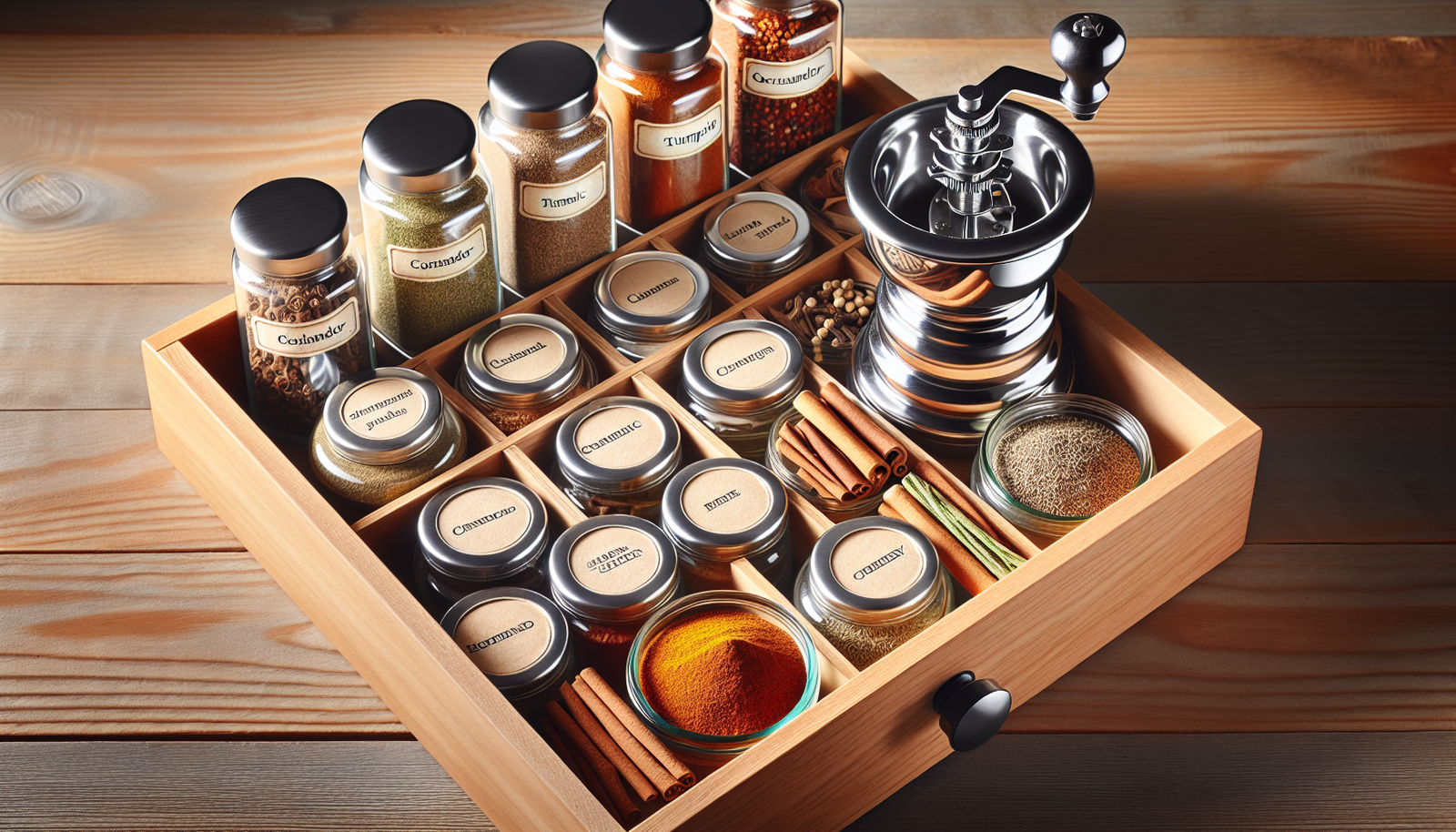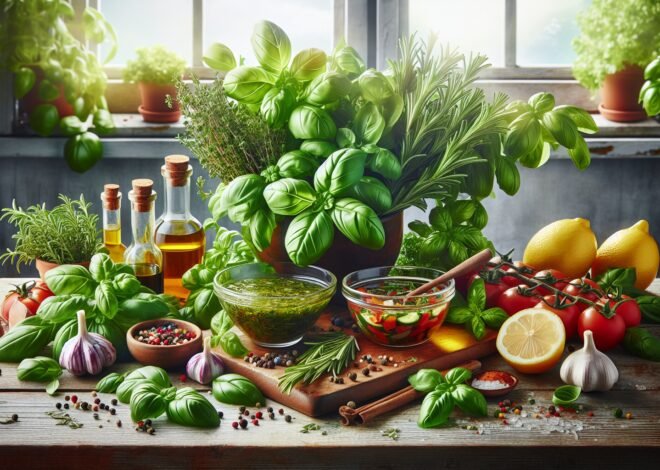
How to Store Spices to Maintain Their Flavor and Freshness
Spices are essential for flavorful cooking, but they can lose their potency if not stored correctly. In this guide, we’ll show you how to properly store your spices to maintain their flavor and freshness for longer, ensuring your meals are always full of rich, vibrant flavors.
Why Proper Spice Storage is Important
Spices are essential in transforming ordinary meals into extraordinary culinary experiences. However, their potential can diminish if not stored properly. Understanding the impact of storage conditions on spices ensures they retain their flavor, aroma, and nutritional value over time.
How Heat, Light, and Air Affect Spices
Exposure to heat, light, and air can significantly degrade spices. High temperatures speed up the degradation of volatile oils, leading to flavor loss. Light exposure, particularly sunlight, can cause spices to fade and weaken their potency. Air introduces moisture and oxygen, leading to oxidation and spoilage. To preserve their quality, it’s essential to minimize these exposures.
Understanding Spice Shelf Life
Spices don’t last forever. Each spice has a unique shelf life, influenced by its type and form. Whole spices generally last longer than ground ones, often retaining their potency for up to four years. Ground spices, however, may only last six months to two years. Knowing these timelines helps in maintaining fresh and potent ingredients in your pantry.
Common Spice Storage Mistakes
- Storing spices above the stove exposes them to heat and moisture.
- Keeping spices in clear glass jars without protective covering allows light damage.
- Using non-airtight containers accelerates loss of aroma and flavor.
- Neglecting to label purchase dates makes it difficult to track freshness.
Best Ways to Store Spices
To ensure your spices remain vibrant and flavorful, adopting effective storage strategies is crucial. These methods prevent deterioration and help you get the most out of your spices.
Using Airtight Containers
An airtight container protects spices from air and moisture, preserving their essential oils and flavors. Glass, metal, or high-quality plastic containers with tight seals are ideal choices. Avoid using porous materials like paper or cardboard, which allow air and moisture penetration.
Storing Spices in a Cool, Dark Place
Location matters when storing spices. A cool, dark cupboard or pantry far from heat sources like ovens is ideal. This environment stabilizes temperature and limits light, preserving the color and potency of your spices. Avoid open shelves or windowsills where sunlight can reach.
Labeling Spices with Purchase Dates
Keeping track of when spices are purchased or opened ensures you use them while they’re still potent. Simple labeling, using markers or stickers with dates, helps you monitor freshness. This practice prevents the use of old, ineffective spices that could compromise your dishes.
Other Tips for Spice Storage
Beyond basic storage techniques, certain practices can extend the life of your spices even further. Understanding the differences between whole and ground spices, using grinders, and recognizing spoiled spices will enhance your culinary arsenal.
Whole Spices vs Ground Spices
Whole spices are less processed and retain their essential oils longer than ground spices. They can last for years when stored correctly. Grinding spices just before use releases fresh flavors and aromas, enhancing dishes significantly. Invest in a good spice grinder to make the most of whole spices.
Using Spice Grinders for Maximum Freshness
A spice grinder allows you to grind spices as needed, releasing their full aromatic potential. Freshly ground spices offer richer and more vibrant flavors compared to pre-ground ones. A high-quality grinder ensures consistency and ease of use, making it a valuable tool in any kitchen.
How to Tell if Spices Have Gone Bad
- Check for visible signs of spoilage, such as mold, clumps, or discoloration.
- Smell the spice; a stale or off scent indicates it’s past its prime.
- Test a small amount in cooking. If the flavor is dull or absent, it’s time to replace it.
Conclusion
Proper spice storage is essential to maintaining their flavor and potency. By keeping spices away from heat, light, and air, you’ll ensure they stay fresh and aromatic for longer. With the right containers and organization, you’ll be able to preserve the quality of your spices and elevate the flavor of your dishes every time you cook.
FAQ
How long do spices stay fresh?
Spices generally remain fresh for 2-4 years when stored correctly. Whole spices tend to last longer than ground ones. Always check for changes in color, aroma, and taste.
Should I store spices in the fridge?
Storing spices in the fridge isn’t necessary. Moisture can affect their quality. A cool, dry place away from heat and humidity is ideal for maintaining their freshness and potency.
What’s the best container for storing spices?
Airtight containers made of glass or metal are the best choices for storing spices. They protect spices from air and moisture, thereby preserving their flavors and aromas.
Can I store spices in direct sunlight?
Direct sunlight can degrade the quality of spices. It’s best to keep them in a dark cupboard or pantry. Sunlight can cause spices to lose both flavor and color.
How can I tell if my spices have gone bad?
Spices lose potency over time. Check for faded color, lack of aroma, or a dull taste. These signs indicate that it’s time to replace them.
What’s the difference between storing ground and whole spices?
Whole spices tend to retain their flavor longer than ground spices. Ground spices have a larger surface area exposed to air, causing a faster loss of potency. Store both in airtight containers for the best results.











